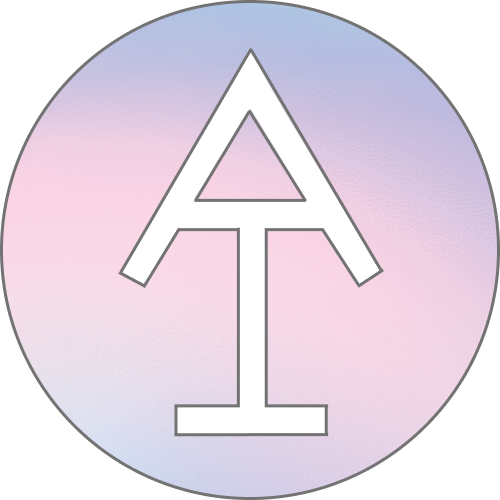Next36 Application 2018
What is the most entrepreneurial thing you have done? What motivated you and what were the results? (200 words)
In 2014, I applied to an organization called Global Vision, which gave young people the opportunity to bring local businesses from their community to a new market. The focus was China, a country I had little experience with but was very intrigued by, which — along with overconfidence from DECA competitions — encouraged me to apply.
Once selected, there was little guidance on how to form the pitch, or what the exact details of the trade mission would be. I began by making a list of a variety of businesses home to Mississauga; design agencies, manufacturing companies, and tech startups. In 2 months, after hundreds of emails, packed days of meetings, and many rejections, I had secured $6000 to fund the trip.
To me, this experience embodied the grind of entrepreneurship. Like a startup, the value proposition can change and the early days are dependent on your perseverance, ability to think critically about the problems of your target market, and above all, make others believe in what you are doing. I created something out of nothing, and that set me on an untraditional path towards tech and building a company.
Describe a time when you were challenged by a supervisor, professor, or colleague about a decision you made. How did you handle the situation and what was the outcome? What did you learn from this experience? (200 words)
This past year, I deferred a year of school to join the Growth team at Clearbit in San Francisco, CA. This followed internships at Shopify in sales and business operations, along with various contract marketing positions with Toronto-based startups. Needless to say, I had a lot of confidence in my abilities and the impact I could make at this 20-person organization.
Within a few weeks of starting, I shipped the revamp of our Zapier integration to thousands of our users via an email campaign. My boss challenged the focus of the campaign, which highlighted the way self-serve (monthly) customers could use our product with Zapier. He had reservations on how clear the value prop was, which I justified based on my conversations with several self-serve customers.
The campaign had good engagement, but it targeted a number of potential annual customers, who saw it as a cheaper way to accomplish their goals. While my boss was surprised by the campaign results, he shared how it disrupted sales cycles, frustrating our sales team. I learned that while shipping things quickly is important, doing due diligence and testing slowly is the way to maximize results while minimizing the fallout of failed tests.
Give an example of a time when you identified a problem or opportunity and acted on it. What were the results? (200 words)
I’ve always found that the idea of a network focuses too much on two people — what value I add to someone, and how they reciprocate. Over the past few years, I’ve met a number of people who are great friends, colleagues, and mentors to me. I saw an opportunity in the value they could bring to each other.
I started by making a Google Sheet of people who I really resonated with, added a few notes, and made an effort to reconnect with them. This time, however, it would be purely for the purpose of discovering their interests and how I could find other people to help them.
Personally, I felt a lot more gratified by those conversations, as I focused more on listening and learning instead of seeking something. Externally, many of my introductions were based on similarity in career interests, but a number were also based on similar places in life — how do you handle your career while having a child? Although it’s a question I can’t answer, this new approach helped me find people who could, adding value where I couldn’t before.
What are some obstacles you have had to overcome in your life to get to where you are today? (200 words)
There are factors in my life that should have pointed towards risk aversion. My parents are first-generation immigrants, and hence wanted me to pursue a career as a doctor or lawyer. They were unemployed throughout my high school years, which should have further exasperated those concerns. Those ‘obstacles’ ended up motivating me to strive for greatness at whichever path I chose to follow, even if it wasn’t paved.
The biggest obstacle in my life thus far is myself. I have a certain mindset that should guide my decision-making, but it has been clouded in the past by parental influence or the herd mentality of my friends. It made certain logical decisions a lot harder than they should be, like choosing an arts degree over business so I have more time to pursue my ambitions in tech. Deferring a year to do growth at Clearbit allowed me to be part of a rapidly scaling startup, but there was the fear of being ‘behind’ or ‘closing doors’ to certain career paths. Overcoming these hesitations helped me carve the path I’m on today, and made me more confident in my decisions without the need for external validation.
Is there anything else you would like to tell us that will help us evaluate your application? (100 word limit)
My decision to apply to the Next36 doesn’t stem solely from curiosity in entrepreneurship and technology. I’ve loved technology since early in freshman year, interning with amazing teams at Shopify Plus. I wanted more autonomy and impact, so I went smaller, working with Turnstyle, #paid, and eventually a year-long internship with Clearbit. In these roles, I was most excited to help build and launch new products. I’m confident in my abilities to market and sell a product, but I think I can learn a lot from the Next36 and I hope I can be a part of it.

